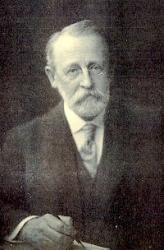Planning worship?
Check out our sister site, ZeteoSearch.org,
for 20+ additional resources related to your search.
- |
User Links
Search Results
Hail The Night, All Hail The Morn
Hymnal: The Cyber Hymnal #10189 Meter: 7.7.7.7 Lyrics: 1 Hail the night, all hail the morn,
When the Prince of Peace was born!
When, amid the wakeful fold,
Tidings good the angel told.
2 Now our solemn chant we raise
Duly to the Savior’s praise;
Now with carol hymns we bless
Christ the Lord, our righteousness.
3 While resounds the joyful cry,
Glory be to God on high,
Peace on earth, good will to men!
Gladly we respond, Amen!
4 Thus we greet this holy day,
Pouring forth our festive day,
Thus we tell, with saintly mirth,
Of Immanuel’s wondrous birth.
5 We in perfect peace would live,
We to God would glory give;
Lauding, with the heavenly host,
Father, Son and Holy Ghost. Languages: English Tune Title: GLAD DAY
Hail The Night, All Hail The Morn
"All Hail the morn!"
Author: Anon. Hymnal: Laudes Domini #145 (1890) First Line: Hail the night, all hail the morn Lyrics: 1 Hail the night, all hail the morn,
When the Prince of Peace was born!
When, amid the wakeful fold,
Tidings good the angels told.
Now our solemn chant we raise
Duly to the Savior's praise;
Now with carol hymns we bless
Christ the Lord, our righteousness.
2 While resounds the joyful cry,
"Glory be to God on high,
Peace on earth, good-will to men!"
Gladly we respond, "Amen!"
Thus we greet this holy day,
Pouring forth our festive lay;
Thus we tell, with saintly mirth,
Of Immanuel's wondrous birth. Topics: Incarnation and Birth; Advent of Christ At Birth; Christ Advent at Birth; Christ Immanuel; Advent of Christ At Birth; Christ Advent at Birth; Christ Immanuel Languages: English
"All Hail the morn!"
"All Hail the morn!"
Author: Anon. Hymnal: Laudes Domini #188 (1888) First Line: Hail the night, all hail the morn Lyrics: 1 Hail the night, all hail the morn,
When the Prince of Peace was born!
When, amid the wakeful fold,
Tidings good the angels told.
Now our solemn chant we raise
Duly to the Saviour's praise;
Now with carol hymns we bless
Christ the Lord, our righteousness.
2 While resounds the joyful cry,
"Glory be to God on high,
Peace on earth, good-will to men!
Gladly we respond, "Amen!"
Thus we greet this holy day,
Pouring forth our festive lay;
Thus we tell, with saintly mirth,
Of Immanuel's wondrous birth. Topics: Advent of Christ At Birth; Christ Advent at Birth; Christ Divinity of; Christ Humanity of; Christ Incarnation of; Christ Prince of Peace Languages: English
"All Hail the morn!"
Anonymous
Person Name: Anon. Author of ""All Hail the morn!"" in Laudes Domini In some hymnals, the editors noted that a hymn's author is unknown to them, and so this artificial "person" entry is used to reflect that fact. Obviously, the hymns attributed to "Author Unknown" "Unknown" or "Anonymous" could have been written by many people over a span of many centuries.
Anonymous
William Wallace Gilchrist

1846 - 1916 Composer of "GLAD DAY" in The Cyber Hymnal Born: January 8, 1846, Jersey City, New Jersey.
Died: December 20, 1916, Easton, Pennsylvania.
Buried: Saint Thomas’ Episcopal Church, Fort Washington, Pennsylvania.
Gilchrist’s family moved to Philadelphia, Pennsylvania, when William was nine years old. He attended school there until the outbreak of the American civil war, when his father’s business failed and William had to seek other work. Having a good voice, he sang in choirs and choruses, first as a soprano, and later a smooth, flexible baritone. He began singing some of the principal parts in the Handel and Haydn Society, where his first real musical life began.
At age 19, Gilchrist began studying organ and voice with Professor H. A. Clarke, gradually concentrating on theory. At age 25, he spent a year in Cincinnati, Ohio, as organist and teacher, returning to Philadelphia to take post of choir master at St. Clement’s Protestant Episcopal Church. He later became conductor of the Mendelssohn Club, Tuesday Club of Wilmington, and Philadelphia Symphony Society.
Gilchrist was best known as a composer. His first success was in 1878, winning two prizes from the Abt Society of Philadelphia for best choruses for male voices. In 1881, he won three similar prizes from the Mendelssohn Glee Club of New York. In 1884, he took a $1,000 prize from the Cincinnati Festival Association; the judges included Saint-Saëns, Reinecke, and Theodore Thomas. This work was an elaborate setting of the Forty-Sixth Psalm, and was enthusiastically received. Gilchrist afterwards modified it and brought it out at the Philadelphia Festival in 1885.
Gilchrist also served as editor of the 1895 Presbyterian hymnal, as musical editor of The Magnificat in 1910, and wrote symphonies, chamber and choral music. His works include:
An Easter Idyll
Psalm 46 (New York: 1882)
One Hundred and Third Psalm
Ninetieth Psalm
Fifth Psalm
Prayer and Praise
De Profundis
The Rose (New York: 1887)
Ode to the Sun
A Christmas Idyll (Boston, Massachusetts: 1898)
The Lamb of God (New York: 1909)
© The Cyber Hymnal™ (hymntime.com/tch)
William Wallace Gilchrist


 My Starred Hymns
My Starred Hymns

